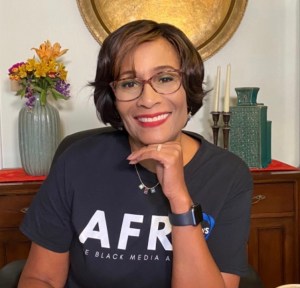

Dr. Frances “Toni” Murphy Draper, AFRO CEO and Publisher (Courtesy Photo)
Although the Supreme Court ruled in 1954 (Brown v Board of Education) that laws establishing racial segregation in public schools were illegal even if the segregated schools were equal in quality, it neither provided funds and protections to facilitate enactment; nor did it provide instruction on how those changes were to be effected. It did, in a second ruling, clearly state, with all deliberate speed.”
Hence the struggle that began when people tried to teach foreign chattel workers to read, which scared the life of those who were committed to their forever enslavement, continues so many years later (so much for that deliberate speed) to pry open doors that led to sciences, arts, technology, humanities, etc. that equip and sharpen minds and hearts in equal ways. And it can’t happen without exposure to “on the way” education that happens in households, communities, museums, concert halls, houses of worship and sundry places where people exchange history and story.
One such history is the story my mother, long-time AFRO Publisher Frances L. Murphy, II (1922-2011), told Fern Ingersoll for the Washington Press Club Foundation as part of its oral history project on Women in Journalism 30 years ago. Below are a few excerpts from that interview that tell a fascinating story of what it was like for Black students seeking a college education in Maryland long before Brown v Board of Education.
Murphy: Before I came out of high school, Parren Mitchell, who later became a congressman, had applied for the University of Maryland, and the University of Maryland had refused to let him come in even as an undergraduate. So, therefore, the governor, and I don’t remember which governor it was at that time, but the governor and my dad (Carl Murphy) got together. My father said, “If you’re not going to let them go to the University of Maryland, then Maryland citizens ought to pay for them to go someplace else.” So the agreement between the governor and my father was, “Okay. I’ll give you so much money and, therefore, you will be chairman of a scholarship commission.” There was only one criteria, that if you couldn’t get a course at Morgan State College and that course was offered at the University of Maryland, then you were entitled to room, board and tuition at any college you wanted to go to. Therefore, my father sent three of us to the University of Wisconsin, room, board, tuition, two travels home each semester. My other sister went to the University of Minnesota on the state of Maryland because we could not get journalism at Morgan State College. It was offered at the University of Maryland School of Journalism. We couldn’t go there. So, they sent us away.
Ingersoll: Would that have been true for young people who wanted to be doctors and lawyers; any kind of professional?
Murphy: That’s right. In those days, it was true for the pre-meds, all of those, if they wanted a certain course like engineering because only the University of Maryland had that.
So, I guess about 90% of my high school class went away to college, which is absolutely tremendous. I should say 90% of those of us in the academic course. There were a lot of different curriculums in those days, and we were divided according to career goals, academic or vocational or so forth.
Ingersoll: But of the academic course people, ninety percent went on to college?
Murphy: Yes, many got scholarships from the Maryland Scholarship Commission.
Ingersoll: I was going to ask you, why Wisconsin?
Murphy: Wisconsin, in those days, was the top journalism school. It was between the University of Minnesota and the University of Wisconsin. He started my sister Bettye off at the University of Minnesota. She ran into trouble trying to get in the dorm, so dad went looking for another school. Therefore, he found the University of Wisconsin. Dr. Grant Hyde was the chairman of the department of journalism at the University of Wisconsin. When my sister Ida got there, I don’t remember whether she got into the dorms or not, but by the time my sister Carlita and I got there, the doors were open to us. Dad had gone there and done whatever he had to do, and we were in the dormitory. We stayed in the dormitory until the war broke out.
Ingersoll: So, it was your father who looked for the right university for you girls.
Murphy: For anybody in my high school class. They would come to him and he would say, “What do you want to do?”
Ingersoll: You graduated in 1940.
Murphy: So, therefore, it had to be the mid-30s or sometime when the commission was started. There were many a class that came behind me, because I kept my scholarship for four years at Wisconsin. So, therefore, up until ’44 I knew students were still going away all over the country to colleges. I don’t remember what year Parren and the others finally broke the barrier down at the University of Maryland, but before the Supreme Court decision , so it was before 1954. But, gee, that was still ten more years, so that was a long time that they sent us all over the country to school, to just keep us out of the University of Maryland. Curly Byrd was president of the University of Maryland. I call him Curly Byrd because that’s what my father would call him. “That Curly Byrd.” I can hear him talking about “that Curly Byrd, who tells me that he wants no Negroes and coloreds in the University of Maryland, and yet he still can’t get these professors to do what he wants them to do, or he can’t get his board to do what he wants them to do. Getting all this money from the state.” I can hear my dad talking about the new stadiums they’re going to have and everything, and we couldn’t study there.
Ingersoll: So your father would help other young Black students to find the right place.
Murphy: That’s right. He was chairman of the commission.
Ingersoll: In things other than journalism?
Murphy: Oh, yes. It depended on what they wanted to do.
Ingersoll: He would help them find the right place in California or wherever?
Murphy: And I have to be very frank with you. Dad would say to you, if you came before him, “If you want to be so and so, find one course that you want to take that Morgan doesn’t offer, so I can give you a scholarship.”
Ingersoll: Wonderful!
Murphy: He wanted some of them to come to Morgan. A lot of them came to Morgan, but there were a lot of them who were going on to professional schools so he wanted to make sure that they had everything that professional school said you were supposed to have. So, therefore, if you were going to a certain school and you didn’t have that course at Morgan, he wanted to make sure you had it. So he would say to them, “Wait a minute. Have you looked at the graduate school? Do you know what they’re going to require you to have? If you haven’t done it, you go back and get the graduate school catalogue.” He said, “Let’s look and see what you have to have in graduate school. Let’s see. Does Morgan have all that?” Or he’d say to them, “You’re going to Morgan for this one year (or these two years) because you can do all that, but then you’ve got to have a scholarship so you can go off to so and so and get the rest of it.”

Frances L. Murphy II (1922-2011) was an educator, civic worker and long-time publisher of the AFRO. (AFRO Archive)
Today, we can get “the rest of it” from many of the 101 HBCUs in the United States including Morgan,, UMES, Coppin, Bowie, Delaware State, University of the District of Columbia, Hampton, Howard, Morehouse, Spelman, and Clark Atlanta to name a few. Yet, funding is still an issue as evidenced by the recent $577 million settlement with the State of Maryland for its historic underfunding of the four HBCUs located in the State. As my mother would say, “it’s a sin and a shame” that it took a lawsuit and several years to make the State do the right thing. Perhaps we need a new Scholarship Commission to ensure that Black colleges and universities have what they need to not only support scholarships but to build and maintain first class facilities, attract the best faculty, and continue to provide a world class education for all students.
Thanks to the entire AFRO team and our sponsors for this edition that highlights the service HBCUs have rendered to our young people for so many years. These campuses have been home away from home and offered the kind of nurture a student needs on their first stay in a strange place. They have given stability in the face of insecurity, and at the same time, offered the gentle nudges needed to force each student to embrace the giftedness within and the greatness that lies ahead.
Frances Murphy (Toni) Draper,
Publisher
Editor’s Note: Dr. Draper was appointed to the Morgan State University Board of Regents in 1995. When she retired in 2020, she was vice chair of the board.
To read more of the interview between Fran Ingersoll and Frances L. Murphy, II go to http://beta.wpcf.org/oralhistory/murph1.html
The post HBCUs filled the educational gap that racism demanded appeared first on AFRO American Newspapers .









